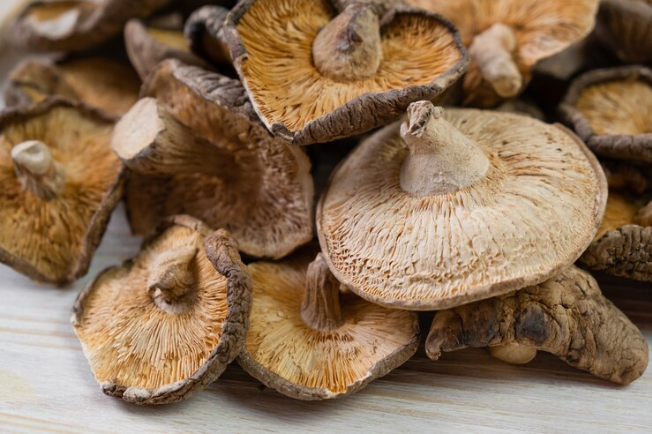With the growing interest in the world of mushrooms, particularly for their medicinal and therapeutic properties, mushroom dispensaries have been gaining popularity in various states across the US. However, the legality of operating such dispensaries can vary significantly from one state to another. In this article, we will focus on the legal regulations for operating a mushroom dispensary in Washington state.
Understanding the Legal Landscape
Mushrooms have long been associated with recreational and therapeutic use, leading to complex legal issues. In Washington, the legal status of mushrooms has recently seen some changes, and it’s essential for potential dispensary owners to understand the current regulations.

Washington’s Psychedelic Mushroom Decriminalization
In November 2020, Washington, D.C., became the first jurisdiction in the United States to decriminalize the possession and use of psychedelic mushrooms. This move has decriminalized the possession of small amounts of psilocybin mushrooms for personal use, making it a low law enforcement priority. However, it’s important to note that decriminalization is not the same as legalization.
Medicinal Mushroom Dispensaries
While psychedelic mushrooms remain decriminalized, operating a dispensary that sells mushrooms for medicinal purposes is subject to stricter regulations. Washington does not have a state-level regulatory framework specifically for mushroom dispensaries, but existing regulations for herbal or alternative medicine dispensaries may apply.
Federal Laws
It’s crucial to keep in mind that despite Washington’s state-level regulations, mushrooms, particularly those containing psilocybin, remain classified as Schedule I controlled substances at the federal level. This means that the possession, distribution, and cultivation of psilocybin mushrooms are illegal under federal law. However, federal enforcement in states that have decriminalized or legalized mushrooms has been limited in recent years.
Licensing and Permits
If you plan to operate a mushroom dispensary in Washington, you’ll need to adhere to specific licensing and permitting requirements. While there are no specific licenses for mushroom dispensaries, you may need to obtain licenses applicable to herbal medicine or natural health products. It’s essential to consult with legal counsel and local authorities to ensure compliance with all necessary permits.
Age Restrictions
In establishments known as mushroom dispensaries Washington, there are certain regulations regarding the sale of medicinal mushrooms, particularly concerning age restrictions. To purchase recreational cannabis products, customers are required to be at least 21 years old. Although mushrooms are not classified as cannabis products, these dispensaries might choose to implement comparable age restrictions for the sale of medicinal mushrooms. This approach aims to guarantee compliance with regulations and promote responsible usage among their clientele.

Lab Testing and Quality Control
To maintain a reputable and compliant mushroom dispensary, it’s essential to prioritize lab testing and quality control. Ensuring that the mushrooms you offer are safe, accurately labeled, and free from contaminants is vital for both consumer safety and legal compliance.
Employee Training and Education
Operating a mushroom dispensary requires knowledgeable staff who can provide accurate information to customers. Consider investing in employee training and education to ensure that your team understands the products you offer, their potential effects, and any applicable legal restrictions.
Packaging and Labeling Requirements
Like other herbal or alternative medicine products, mushrooms sold at dispensaries may need to meet specific packaging and labeling requirements. This could include providing information on the product’s contents, recommended dosages, potential side effects, and contact information for the dispensary.
Conclusion
Operating a mushroom dispensary in Washington involves navigating through a complex legal landscape. While psychedelic mushrooms are decriminalized, running a dispensary for medicinal mushrooms requires careful attention to state and federal laws, licensing, age restrictions, lab testing, and more. As regulations continue to evolve, staying informed and compliant is crucial for the success and sustainability of your mushroom dispensary.
Frequently Asked Questions (FAQs)
Is it legal to sell psychedelic mushrooms in Washington?
No, it is not legal to sell psychedelic mushrooms in Washington. While possession of small amounts for personal use is decriminalized, selling mushrooms containing psilocybin remains illegal under both state and federal law.
What types of mushrooms can be sold at a medicinal mushroom dispensary in Washington?
Medicinal mushroom dispensaries in Washington typically offer a variety of non-psychedelic mushrooms known for their potential health benefits. These may include Lion’s Mane, Reishi, Cordyceps, and Turkey Tail, among others.
Are there any restrictions on advertising for mushroom dispensaries in Washington?
Yes, advertising restrictions may apply, especially when it comes to promoting products that are perceived as alternative medicine. It’s essential to be mindful of state and local regulations to avoid potential legal issues.
Can I cultivate mushrooms at the dispensary for sale?
Cultivating mushrooms that contain psilocybin for sale is illegal under both state and federal law. However, you may cultivate and sell non-psychedelic medicinal mushrooms if you comply with the necessary regulations.
Are there any restrictions on the amount of mushrooms a customer can purchase?
While there are no specific restrictions on the amount of medicinal mushrooms a customer can purchase in Washington, it’s crucial to adhere to responsible sales practices and not encourage excessive consumption.
Do I need a medical license to operate a medicinal mushroom dispensary in Washington?
As of now, Washington does not require a specific medical license for operating a medicinal mushroom dispensary. However, you may need to obtain general business licenses and permits applicable to herbal or alternative medicine establishments.
